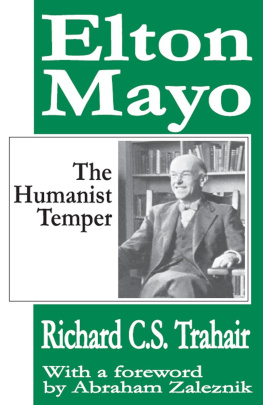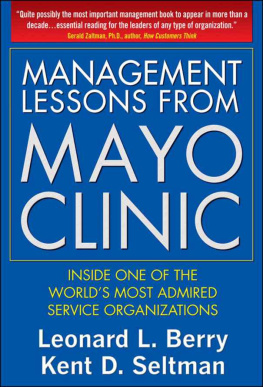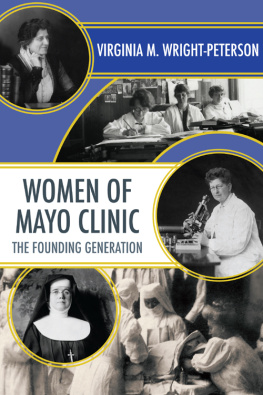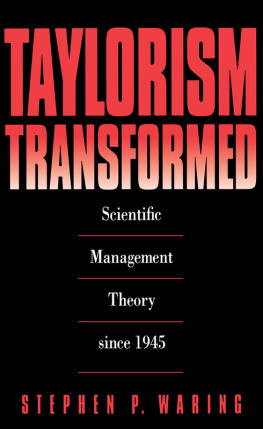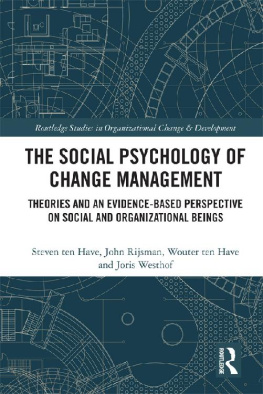First published 1984 by Transaction Publishers
Published 2017 by Routledge
2 Park Square, Milton Park, Abingdon, Oxon OX14 4RN
711 Third Avenue, New York, NY 10017, USA
Routledge is an imprint of the Taylor & Francis Group, an informa business
Copyright 1984 by Taylor & Francis.
All rights reserved. No part of this book may be reprinted or reproduced or utilised in any form or by any electronic, mechanical, or other means, now known or hereafter invented, including photocopying and recording, or in any information storage or retrieval system, without permission in writing from the publishers.
Notice:
Product or corporate names may be trademarks or registered trademarks, and are used only for identification and explanation without intent to infringe.
Library of Congress Catalog Number: 83-24116
The Library of Congress has cataloged the cloth edition as follows:
Trahair,R.C.S.
The humanist temper.
Bibliography: p.
Includes index.
1. Mayo, Elton, 1880-1949. 2. Industrial sociologistsUnited StatesBibliography. 3. Industrial sociologyUnited States. I.Title.
HD6957.U6T731984306'.36'0924 [B] | 83-24116 |
ISBN 0-88738-006-9
ISBN 13: 978-1-4128-0524-7 (pbk)
Abraham Zaleznik
George Elton Mayo pioneered in the field of industrial human relations and for that work deserves a place in business history. I seriously doubt, however, that Mayo would have secured this position were it not for the labor and dedication of his countryman and biographer Richard C.S. Trahair.
Understanding Elton Mayo, the man and his ideas, requires more than a reading of his few books or studying the results of the Western Electric researches. Almost everyone takes for granted today that the success of an enterprise requires careful attention to human factors. No one believes that Frederick Taylor and scientific management provide the key to industrial management. Almost everyone accepts the idea that management is more than applied economics and that decision making is much more than the mathematics of probability or applied game theory. All schools of business and public administration appoint social scientists to their faculties, and courses in organizational behavior are routinely accepted in the curricula. Yet in Mayos time, management was hardly viewed as a profession, and the idea of considering human relations in factories and offices was astonishing. From the perspective of the 1890s, what Mayo urged in broad outline has become part of the orthodoxy of modern management. Despite this diffuse acceptance of Elton Mayos ideas, few students know who he is, and even the most mature managers probably spend little time reflecting on his work.
In writing the biography of Elton Mayo, Richard Trahair sought to discover the facts about this man and his work and to report them faithfully and accurately. It was never his intention to make a hero of Mayo, nor to apologize for his foibles and limitations. The foibles and limitations were in abundance, and to his great credit, the author does not spare his subject by glossing over facts that lead to questions about the nature of this bold figure in industrial history, the content of his psychology of the workplace, and the manner of the cure he sought to impose on the sickness of an acquisitive society. Richard Trahair had to face and report the fact that Mayo was not averse to overpresenting his formal qualifications or that he eagerly sought acceptance from medical practitioners and psychiatrists. It was remarkable how easily he gained the confidence of respected physicians who invited him into their clinics and referred patients to him for psychiatric treatment. Among respected management specialists such as Colonel Urwick, Mayo was known as doctor, and referred to as a psychiatrist specializing in the treatment of mental disorders. Mayo did attend medical school in Australia and England, but he dropped out of the course of study for reasons that are not clear but that suggest the anxieties of a young man who felt overwhelmed when faced with making commitments or accepting conventional roles. Despite the fact that he left medical school, he appeared drawn to the practice of psychiatry such as it was in his time, and indeed, the record seems clear that Mayo had an extraordinary capacity to touch people who were in distress and for whom a healer was a godsend.
I did not know Elton Mayo personally. When I accepted my first appointment as a research assistant at the Harvard Business School in February 1947, Elton Mayo was preparing to retire the following June. I first became aware of this strange figure of a man when the head teller of the Cambridge Trust Company, a local bank, pointed him out to me and said in a voice mixed with awe and amusement: There goes Elton Mayo. Years later, a colleague described how Mayo, with uncanny acuity, recognized his distress over the illness of his infant child. Mayo asked the kinds of questions and made the kinds of comments that were reassuring if only on the level of showing human concern for anothers commonplace anxieties. Many people thought that he had magical powers as an interviewer. Putting the question of magic aside, Mayos rules of interviewing still deserve attention from researchers who think they can advance knowledge by studying people in the places where they live and work or, as we often say at the Harvard Business School, in the field. To listen and not to talk does not come naturally to most of us; we can obtain huge dividends by reflecting on Mayos simple advice for conducting studies in the field.
From the perspective of psychoanalytic knowledge, Mayos talents were not so uncanny as they appeared to his students or to the industrial managers who accepted his guidance in the conduct of research into the conditions of productivity and morale in the factory. Nevertheless it took extraordinary talents and nerve to venture into factories with a method based on a theory derived from psychiatry. Imagine what it must have been like in the 1920s and 1930s to conduct research in factories into the human aspects of productivity and morale. From the textile mills in Philadelphia to the Hawthorne Works in Cicero, Illinois, this slim, gangly figure, with his long cigarette holder, held court on the problems of reveries and their interference with a workers ability to concentrate and perform his tasks. Mayos cure for these unsettling reveries was to establish contact with the worker and give him a feeling of no longer being alone. Mayo believed that the isolation of the workplace produced the symptoms of distress such as boredom, fatigue, and the sense of hoplessness that often accompany isolationwhat the sociologist Emile Durkheim called anomie. Mayo believed there was a variety of ways to interfere with the morbid process that he ascribed to reverieranging from taking a workers blood pressure and getting him to talk about what was on his mind, to establishing rhythms of work and rest, with the periods of rest including an opportunity for workers to talk to each other. In advance of Carl Rogers, Mayo practiced nondirective interviewing, primarily designed to establish human contact among otherwise isolated individuals.
As I have indicated, Mayos practice was not magical or uncanny. He utilized the power of transference to affect the people he saw. Lest the accusation be made that he used transference only with members of the working class, who could easily be seduced into a dependency relationship, the following pages clearly show that managers were also susceptible to the powers of transference, and placed extraordinary trust in this odd figure who spoke like an Englishman and carried a handkerchief in his sleeve.

